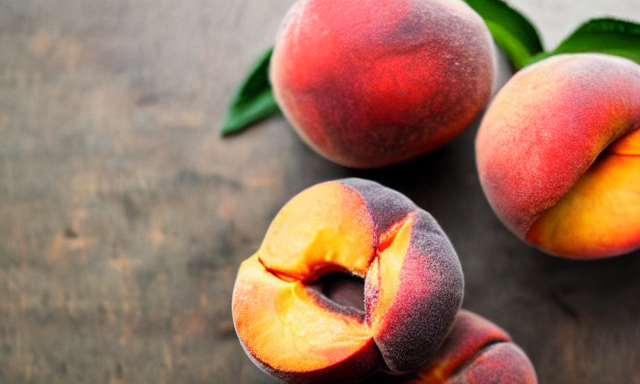Internet Asks: "Are Peaches Acidic?"
Peaches are a beloved fruit, cherished for their sweet and juicy taste. They're versatile and can be consumed in a variety of ways, from fresh off the tree to canned and baked into pies. However, some people may be concerned about their acidity levels and whether they can cause discomfort or harm to their health. In this article, we'll examine the acidity of peaches and discuss their potential effects on your health.
Sponsored Links
pH Level of Peaches
The acidity of a substance is determined by its pH level. The pH scale ranges from 0 to 14, with 0 being the most acidic and 14 being the most alkaline. According to the USDA, the pH level of peaches ranges from 3.30 to 4.05, which means they are moderately acidic. However, the pH level can vary depending on factors such as ripeness, variety, and growing conditions. For example, unripe peaches are more acidic than ripe ones, and yellow peaches are generally less acidic than white peaches.

Peaches and Acid Reflux
While peaches are moderately acidic, they are generally considered safe to consume for most people. However, if you have a condition such as acid reflux or GERD, you may need to limit your intake of acidic foods, including peaches.
Benefits of Peaches
Peaches are packed with essential nutrients that can benefit your health in various ways. Here are some potential benefits of consuming peaches:
Sponsored Links
Side Effects of Peaches
While peaches are generally considered safe, some people may experience allergic reactions to them. Symptoms of a peach allergy may include itching, hives, and swelling of the lips and tongue. If you experience any of these symptoms after consuming peaches, you should seek medical attention immediately.
Conclusion
In summary, peaches are moderately acidic but are generally considered safe to consume for most people. They are a great source of essential nutrients and can benefit your health in various ways. However, if you have a condition such as acid reflux or GERD, you may need to limit your intake of acidic foods, including peaches. If you have any concerns about consuming peaches, it is best to consult with a healthcare professional.
Sponsored Links
References
People are also reading...
🍉 Is Watermelon Acidic?
🫐 Are Blueberries Acidic?
🥭 Are Mangoes Acidic?
Ready to level-up?
Create meal plans 10x faster, follow up with your clients through our mobile app, and never struggle with meal planning or recipe management again.